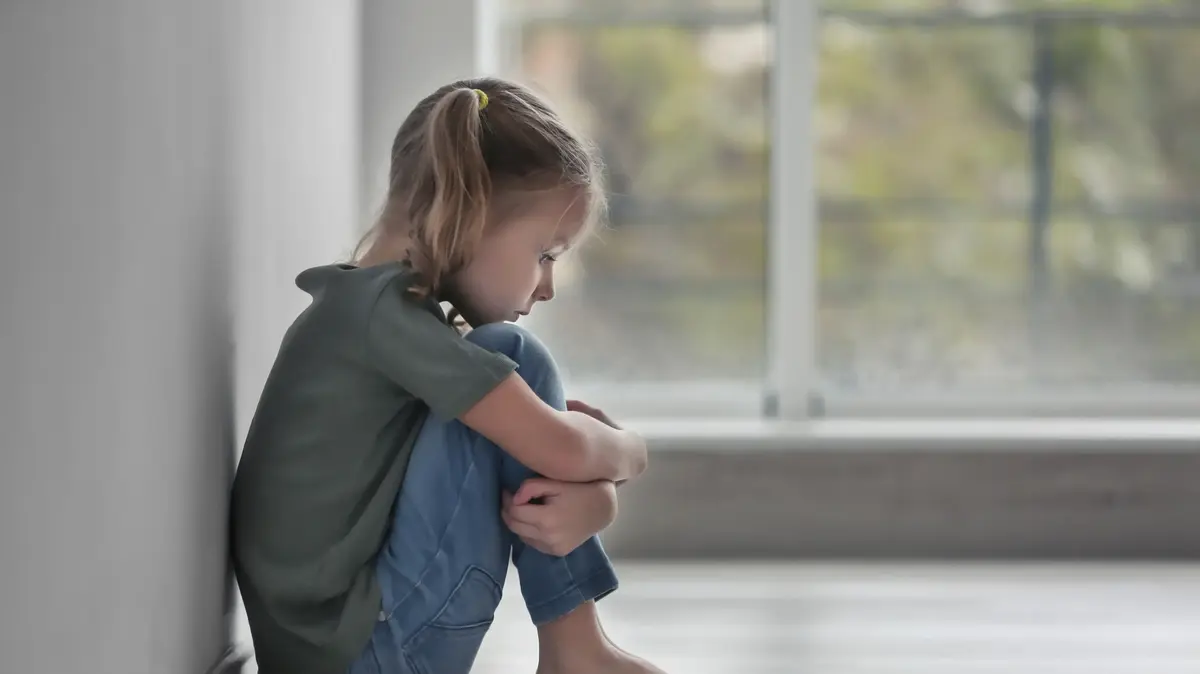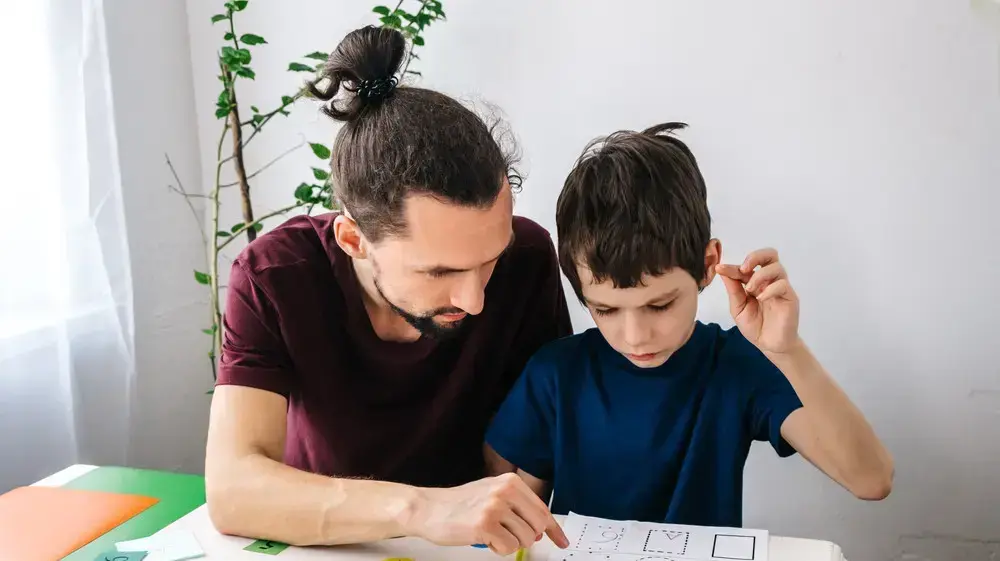Especially now: how to help a child develop his social and emotional world?
The emotional and social world of children bothers every parent during a routine and once more in times like now.
A communication clinician explains how we parents can help them, and what we must avoid
Efrat Firer
31/12/2021
Friday, 31 December 2021, 07:32 Updated: 07:38
Share on Facebook
Share on WhatsApp
Share on Twitter
Share on Email
Share on general
Comments
Comments
Following the arrival of the Omicron variant, we have been hearing discussions for the past week about returning some of the students to zoom learning, in parallel with repeated warnings from educators about the emotional and social situation of Israeli students.
There is no doubt that at such a time, when we are facing a great deal of uncertainty, many parents are facing a broken trough as to the social and emotional state of their children.
It is important to remember that the socio-emotional capacity includes a large number of individual, interpersonal and group skills with the help of which the child is able to manage his emotions and cooperate with his friends.
This ability begins to develop as early as infancy and plays a significant role throughout life, from early childhood to adulthood.
The socio-emotional ability is manifested in making connections with friends, understanding, regulating and expressing emotions, developing academic skills and motivation for learning, developing relationships, finding and retaining work and more.
When there is difficulty in the emotional social realm, it can affect these important aspects.
More on Walla!
When should the child be taken to a communication clinician?
Instructions
In collaboration with JAMA
The environment close to the child - the parents, the family, the educational framework and friends of his age, are of great importance in the development of emotional and social abilities.
From an early age the child receives support from his parents, family and educational staff for desirable behaviors, both directly ("Say thank you", "Do not hit") and indirectly through watching and imitating the adult environment.
For example, a girl who sees her parents bypassing the line, or behaving rudely towards others, will learn to do the same.
Through the environment the child also learns to express emotions.
For example, a parent sees his toddler erupt in anger and expresses it by lying on the floor and crying, interpreting the situation by saying "you are angry", thus giving the child the words to express his emotion so that in the future he can regulate his feelings, and say what he feels instead. erupt.
Let them play.
Children play together (Photo: ShutterStock)
Playing with children is also very important in developing emotional social skills, because through the experience and experience of playing in a group the child learns the desired rules of behavior in the game - how to contact friends, how to join the game, or leave a game if he does not want to accept the group rules.
A shy child will have a hard time showing initiative and asking to join the game.
A girl who does not play by the rules may quarrel, get angry and experience rejection from the team.
A child who does not know what is appropriate or inappropriate to say during a game or activity in a team, may be perceived as a "strange" child.
During play with friends one can also find a description of feelings and sharing between friends which allows children to sharpen for themselves the understanding of their own feelings and those of others, and at a later age also to process feelings they feel about events.
More on Walla!
Start getting angry at your kids.
It will do them good
This way you will empower the children socially and emotionally at home as well
This scenario happened to every parent.
This is the right way to deal with it
Loan on better terms from the bank: up to NIS 100,000 and for any purpose
Along with the impact of the environment, as the child grows he is able to better understand the demands and expectations of the environment and implement them.
For example, a young child can tell a grandmother that the food she has prepared is not tasty, while an older child will learn the rules of etiquette and understand that he is hurting her feelings.
How can children be helped to develop their emotional social world?
Using emotional language:
Naming different feelings the child experiences (the sadness you lost in the game, what fun to win, annoying that Shaked grabbed the swing) will help the child understand what he is feeling and express it verbally instead of in behavior.
Consistency:
Maintaining desirable and undesirable rules of conduct, and consistency in these laws.
If the statement at home is that "playing computer games only for an hour a day" and in practice do not maintain the limit, the message to the child is that laws are not unequivocal and can be violated.
Such an understanding will lead the child to find that even in the game it will be difficult to play by the rules and later on it will be difficult to accept rules at school and in the workplace.
Personal example:
Our behavior is a role model for children.
An environment that gives a good role model (relationships with friends, helping others) will cause the child to internalize these rules in his behavior, compared to an environment that gives a bad model (like lying, or bypassing a queue).
It is important to note that sometimes the behavior may be inconsistent with what is being said to the child.
For example, a child who on the one hand hears the statement "it is forbidden to lie" and on the other hand picks up the phone and the parent tells him "say I am not at home" receives a message that the parent does not meet the requirements he himself set.
Our behavior is a role model for children.
Father and daughter recycle (Photo: ShutterStock)
Creating Opportunities for Meeting Friends:
Especially in the Corona Age, it is important to allow an environment to experience playing games with friends. It is important to experience games with different friends and not necessarily with the only friend with whom it is comfortable to play and with whom there is a regular pattern of play. It is also important to experience a variety of games and not necessarily linkages to one game. This can help develop interpersonal relationships and skills.
And when there is difficulty?
In recent years, the field of treatment through social groups has been gaining momentum. The treatment is performed by various professionals especially by communication clinicians, occupational therapists and therapists from the psychosocial field. In these groups the children experience playing with friends within a small group led and mediated by the caregivers. Within the group create opportunities to deal with social situations that challenge the participants - how to apply to join? How to suggest ideas for the game? What do you do when you do not agree on rules? How are disagreements resolved? What do you do when you lose? What do you do when you are angry or offended? - Through the team game.
A combination of a supportive adult environment that gives the child social rules while experimenting with a society of children his age, can lead to the development of emotional social abilities that will serve the child throughout his life and help him become an adult with the ability to connect, collaborate with others and process experiences. During the life.
The author is a communication clinician, a lecturer in the Department of Communication Disorders at Hadassah Academic College.
health
parenthood
Child health
Tags
Education
Welfare
Emotions
Emotional therapy
Speech therapist









/cloudfront-eu-central-1.images.arcpublishing.com/prisa/Z45E6KV7VJGUXAKJWH7VA4NJSE.jpg)




